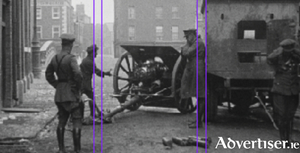Search Results for 'Giorgio'
6 results found.
A visit to Fluntern Cemetery
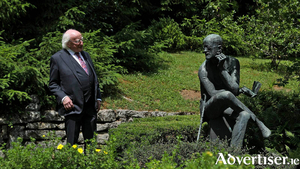
On a late August afternoon my friend John Hill drove me across the city of Zurich, climbing the suburban heights until we stopped at the gates of Fluntern Cemetery. We walked up the last incline to where, among the trees and billard-table lawns, we saw the Joyces’ grave. There was no mistaking it. Just above the grave is the Giacometti-like sculpture of the writer himself, the work of American artist Milton Hebald. There James Joyce sits, in characteristic pose, deep in conversation, head tilted, one leg resting on the other knee, cigarette poised, his slim cane delicately balanced. Someone once remarked that he held his cane like a musical instrument.
‘My dear little runaway Nora..’
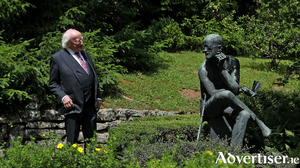
Like all widows Nora had barely time to grieve. There was so much to be done. Both she and Giorgio and her grandson Stephen, were in a state of shock at Joyce’s sudden death. Joyce suffered indifferent health all his adult life, and endured a series of painful eye operations which had little effect on his looming blindness.
A story of two fathers and two children
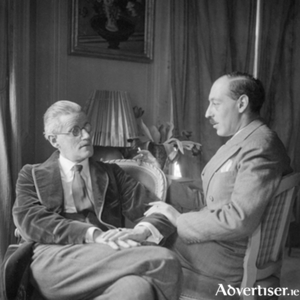
The final chapter in the history of Shakespeare and Company, the famous Paris bookshop, began with the publication of James Joyce’s Finnegans Wake, in May 1939. The shop closed in December 1941 when a Nazi officer saw a copy of Joyce’s book in its window and asked to buy it. Sylvia Beach refused saying it was her only copy, and was not for sale. The officer threatened to return and confiscate her entire stock, and left. He returned the next day and demanded she sold him the book. Again Sylvia refused, and the officer, ‘trembling with rage’ warned that he would be back that afternoon and seize all her books.
Two weddings and a broken young girl
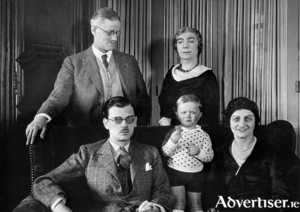
There has never been a concentration of outstanding literary and artistic talent such as that in the Paris of the 1920s. The city heaved with outrage and ecstasy at the paintings of Piccaso, and Henri Matisse, the music of Igor Stravinsky, and the wild dancing of Joséphine Baker at the Folies Bergere, and the most extraordinary avant-garde literature, where new boundaries were created by a wave of modernist writers, the most celebrated being James Joyce.
